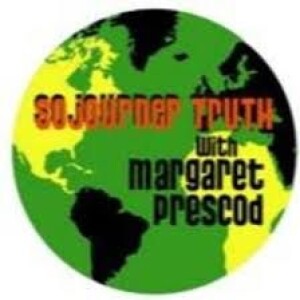
Today on Sojourner Truth we discuss the UN Climate Summit held in Egypt, or Cop 27, that culminated Sunday November 20th after two weeks of arduous negotiations. This victory is a direct result of mounting pressure from global civil society organizations present in Sharm el-Sheikh and in cities and capitals around the world, combined with strong leadership, 30 years in the making.
A breakthrough deal is the establishment of a loss and damages fund to help poorest countries most impacted by climate change. Rich countries are agreeing to contribute to this fund but what will this actually look like? It will likely still be several years before the fund exists. Major lingering questions include: who would oversee the fund, how the money would be dispersed – and to whom.
Many countries said they felt pressured to give up on tougher commitments for limiting global warming to 1.5 degrees Celsius in order for the landmark deal on the loss and damage fund to go through. And the richest countries largely contributing to fossil fuel pollution, made no real commitments to curb their use, in fact the loss and damage funds deal also included a reference to "low-emissions energy," raising concern among some that it opened the door to the growing use of natural gas - a fossil fuel that leads to both carbon dioxide and methane emissions.
Joining us to discuss and contextualize the gains and concessions that took place at Cop 27 are, Shereen Talaat is Co-director and one of the founders of The Arab Watch Regional
Coalition for Just Development that covering issues in the Middle East and North Africa, Tina Gerhardt, journalist and Cop 27 correspondent covering the UN conference for The Nation magazine and Luiz Vieira coordinator for the Bretton Woods Project. The Bretton Woods Project is a civil society watchdog of the IMF and World Bank, advocating for a multilateral system that is democratic, inclusive, transparent, accountable, and responsive to people, especially the poorest and most vulnerable.
view more
More Episodes
Update on the Presidential election 2024
 2024-08-27
2024-08-27
 2024-08-27
2024-08-27
Interview with Bernice Johnson Reagon
 2024-07-23
2024-07-23
 2024-07-23
2024-07-23
2024 EU elections results
 2024-07-09
2024-07-09
 2024-07-09
2024-07-09
Malcolm X Birthday special
 2024-05-21
2024-05-21
 2024-05-21
2024-05-21
The crisis facing Haiti today
 2024-01-30
2024-01-30
 2024-01-30
2024-01-30
012345678910111213141516171819
Create your
podcast in
minutes
- Full-featured podcast site
- Unlimited storage and bandwidth
- Comprehensive podcast stats
- Distribute to Apple Podcasts, Spotify, and more
- Make money with your podcast
It is Free
- Privacy Policy
- Cookie Policy
- Terms of Use
- Consent Preferences
- Copyright © 2015-2024 Podbean.com





